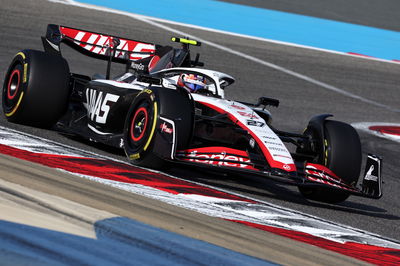Haas Automation reject "simply false" claims they traded machinery with Russia

A statement on Thursday read: "On Tuesday, March 14, PBS ran a story alleging that our team partner, Haas Automation, had directly provided machines and parts to Russia in violation of U.S. export control and sanctions regulations.
"As per Haas Automation’s company statement - that story is simply false, both in its overall impression and in many of its particular statements.
"Key Points:
Haas Automation is and has always been in full compliance with U.S. Government export control.
No machines have shipped from the Haas Automation factory to Russia since March 3, 2022.
The 18 machines referenced in the story left the Haas Automation factory prior to the Russian invasion of Ukraine.
Haas Automation voluntarily chose to terminate its relationship with the Russian distributor, which has never been required by any U.S. sanctions.
Haas Automation completely supports Ukraine and its people in their defense against Russia.
"On March 3, 2022, shortly after the Russian invasion of Ukraine, Haas Automation terminated, in its entirety, its relationship with its sole existing independent distributor for Russia and Belarus, Abamet Management. Since that date, Haas has not sold or shipped any machines, parts, or software to Abamet or anyone else in Russia. This crucial fact was made clear to the PBS reporter before the story was aired.
Haas Automation has been manufacturing machines for more than 30 years, and there are more than 200,000 Haas machines currently in use throughout the world. Throughout that period, Haas has been a strict adherent to all U.S. export control and sanctions regulations, and an even stronger supporter of the U.S. policy goals many of those regulations are designed to address."

![Toprak Razgatlioglu, ROKiT BMW Motorrad, BMW M 1000 RR [Gold & Goose]](https://cdn.crash.net/2024-09/GnG_1165424_HiRes.jpg?height=90)






![Johann Zarco, LCR, Honda RC213V, 2024 San Marino MotoGP, Misano, action [Gold & Goose]](https://cdn.crash.net/2024-09/GnG_1166323_HiRes.jpg?height=90)

![Jack Miller, KTM Factory Racing, KTM RC16, San Marino MotoGP, Misano, action [Gold & Goose]](https://cdn.crash.net/2024-09/GnG_1167624_HiRes.jpg?height=90)